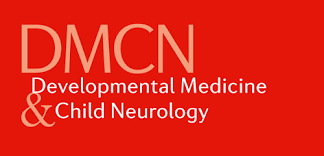Prenatal alcohol exposure (PAE) can result in a range of neurodevelopment impairments, which can affect an individual’s physical, behavioural, and cognitive functioning, while also having an impact on everyday life. When these impairments have a significant impact on three or more cognitive domains, an individual may be diagnosed with fetal alcohol spectrum disorder (FASD). FASD is estimated to affect 7.7 per 1000 children globally. Diagnosing FASD is complex, often requiring expertise from multiple disciplines and complex assessments; yet, there are few trained professionals. Symptoms of FASD include diminished neurological and cognitive functioning, as well as behavioural problems. These symptoms result in primary effects that impact individuals with FASD, such as difficulties with social skills, memory, academic achievement, cognition, and attention. These difficulties affect people’s ability to function in several aspects of life, including education, employment, mental health, and engagement with the justice system.
Individuals with FASD have difficulties that persist throughout their life, from early life through to adulthood. These difficulties range from everyday challenges, such as keeping appointments and understanding complex social situations, to tertiary difficulties that result from failures to accommodate and support individuals affected by FASD, such as school disruption, substance misuse, homelessness, unemployment, and greater risk of being involved with the justice system. Compounded by a lack of support and stigma, individuals living with FASD may also experience challenges with their mental and physical health; average life expectancy is significantly below the general population at 34 years. Stigma and misconceptions about FASD are pervasive; individuals with FASD may be perceived by others as lazy, troublesome, or bad, while caregivers are perceived as bad and uncaring parents, and biological parents as careless. Stigma is felt by those affected by FASD, resulting in isolation and difficulties accessing support.
Given the difficulties individuals with FASD experience, early diagnosis and effective support and interventions, are essential to support individuals with FASD. Professionals are key in providing support directly to those affected by FASD; however, professionals often feel unprepared, while lacking the training, organizational support, and confidence needed to support individuals with FASD. For example, a recent survey of educators found that most were aware of FASD but had significant gaps in their knowledge; very few felt well prepared to educate someone with FASD. Being unprepared could in part contribute to difficulty accessing diagnosis and the lack of support individuals with FASD experience, despite early intervention being the key to success.
Although emerging research is beginning to explore how individuals with FASD experience everyday life, it is complicated by diverse views. Therefore, a synthesis of the existing literature is useful to understand how people experience everyday life while living with FASD. A previous systematic review examined the lived experiences of individuals with FASD, demonstrating that individuals with FASD experience a range of difficulties that impact their everyday functioning, while caregivers experience concerns, anxiety, stigma, and a lack of support. However, the review did not include grey literature or consider the views of professionals who have experience working with individuals with FASD, views that are vital because they can shape access to early intervention and support. Therefore, we conducted a scoping review to provide an up-to-date synthesis of the literature on the lived experiences of individuals with FASD, their caregivers, and those working with individuals with FASD to understand their everyday experiences to better inform services. A scoping review enables a more comprehensive examination of the evidence and synthesis of any existing gaps.

